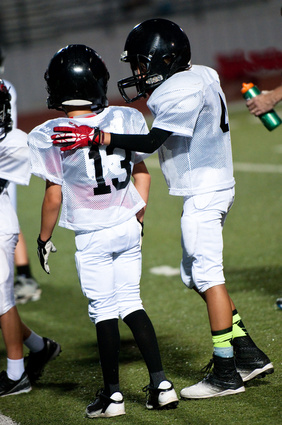
It is estimated that 1.7 to 3.9 million concussions occur each year across the United States. The recent increase in awareness because of high school football injuries has led to an increase in the diagnoses of concussions. A concussion is a short-lived functional brain injury typically caused by a bump, blow or jolt to the head. No matter the reason for the head trauma, whether it’s sports or a falling from a tree, you should know what to watch for and what you should do.
Concussions can happen at all ages, but a mild concussion in a young person’s still-developing brain has the potential to be more serious than in an adult’s. And we are learning more and more how seemingly minor concussions can damage our thinking for as much as a lifetime.
Concussion warning signs:
- Headache
- Nausea
- Dizziness
- Unbalanced
- Light sensitivity
- Blurred vision
For a quick check: If they have trouble with this task, consider a concussion.
-
- Have the person stand with their feet together and close their eyes. If they seem balanced…..
- Open eyes and stand on one foot.
- Walk a straight line.
- Stretch out a hand, touch nose with index finger.
- Confusion
- Loss of consciousness
- Memory loss
- Slurring speech
- Tired
- Slow response time
Quick check: If they are slow to do step 1, or can’t answer the questions, it is likely a concussion
-
- Have them follow your finger from place to place.
- Ask questions they should know the answer to. Name, Birthday, Address…..
- Mood swings
- Any unusual sleep patterns following injury
- Nervous
- Depression
What to do if you have a concussion:
Treatment for a concussion depends on the severity of your symptoms. The best thing to do is get plenty of rest, both physically and mentally. That means no sports and no (dare I say) smart phones. During the first 24 hours after the injury, your doctor may suggest that you have someone wake you up every two to three hours.
As your symptoms improve, you can slowly add more activities that involve thinking.
For headaches, try taking a pain reliever such as acetaminophen. Avoid other pain relievers such as ibuprofen and aspirin, as they may increase the risk of bleeding.
If you do suspect a concussion visit your local Coastal Urgent Care.
